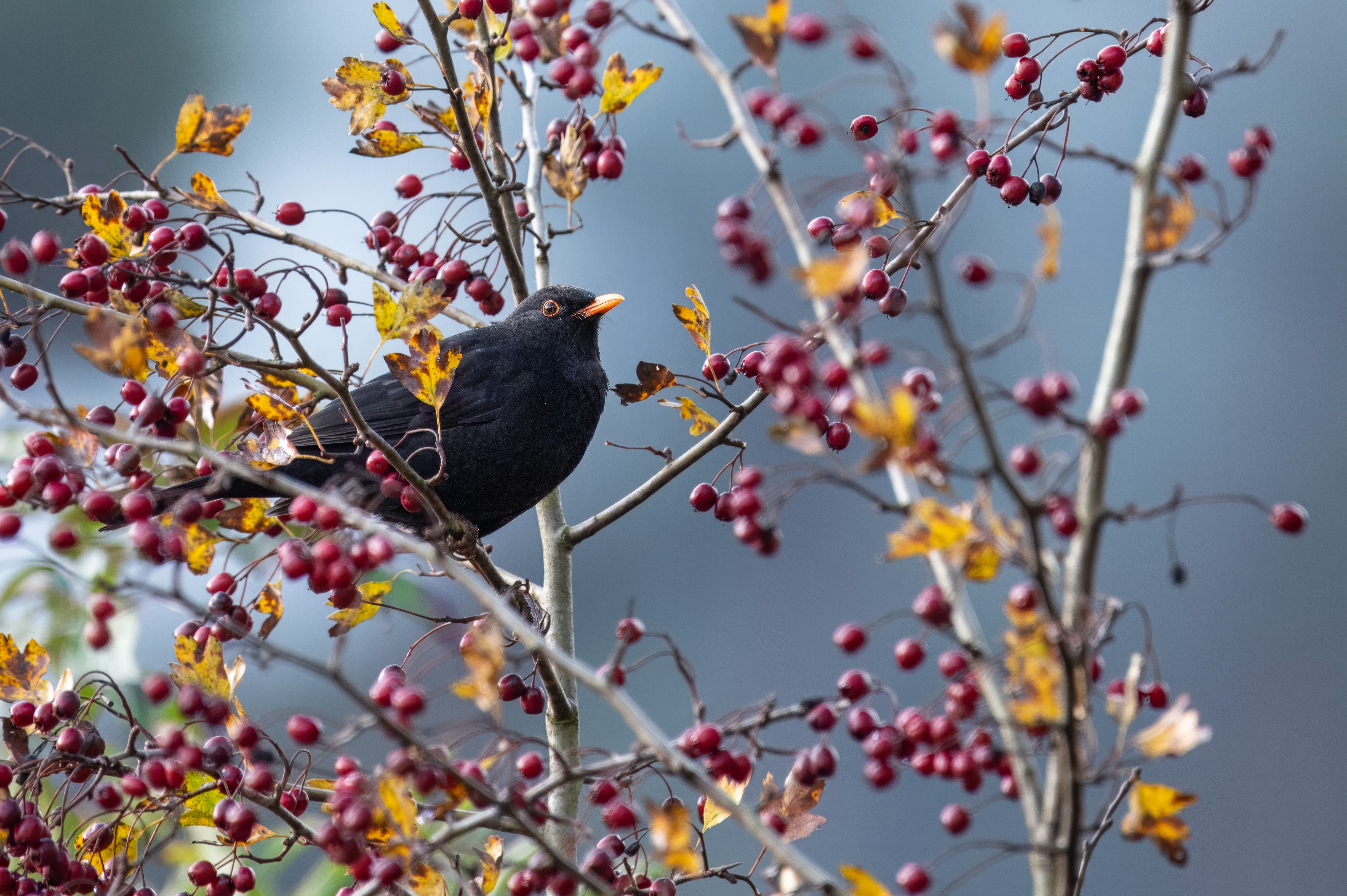5 top gardening for birds tips for September and October
September 22, 2025

With the warmer months behind us, you may be starting to think about what you can do in your gardens to provide during the autumn and winter for our feathered friends. Here are our top 5 gardening tips for September and October:
1. Plant for food and shelter: Choose native plants that bloom in late summer and early autumn, such as sedums, or asters. These plants provide a valuable nectar source for insects, which in turn serve as food for songbirds. Native berry-rich shrubs and trees like hawthorn, holly and rowan are a lifeline for birds like redwings, fieldfares, and blackbirds when other food sources are scarce.
2. Get nesting boxes ready: While songbirds may not be nesting yet, it's a great time to give your nest boxes a good clean out,removing old nesting material. Or you could install new nesting boxes to provide birds with suitable places to roost and nest next spring. Make sure to place the boxes in quiet, sheltered spots away from predators.
3. Don’t be too tidy: Gather fallen branches, leaves,and twigs to create a habitat for insects in a corner of your garden. These piles also offer excellent shelter for birds, especially ground-feeding species like thrushes and wrens. The shelter they provide is particularly important during colder months.
4. Maintain bird baths: Continue to keep your bird baths clean and filled with fresh water. As temperatures begin to drop, water sources can become scarce, making your garden a valuable oasis for thirsty birds. Consider adding a small stone or ball to prevent the water from freezing during colder nights.
5. Leave seedheads and berries: Instead of cutting back all of your plants, leave some seedheads (from plants such as sunflowers and coneflowers) and berries intact. These provide essential food sources for songbirds like finches and sparrows, as they prepare for the winter.
Autumn is a crucial time for birds as they prepare for colder weather. Making a few simple changes to your garden can provide them with the food, water, and shelter they need.
The SongBird Survival Team
If you are a scientist and would like to shine a light on your recent research covering songbirds here in the UK, then let us know. As a supporter of our charity, if you have ideas for blog posts you would like to see and topics you would like us to cover on the SongBird Survival blog, please contact us at dawn-chorus@songbird-survival.org.uk.
We need your help to fund our crucial independent research and work.
Join our community and receive our exclusive membership benefits.
Receive our monthly e-news and regular updates